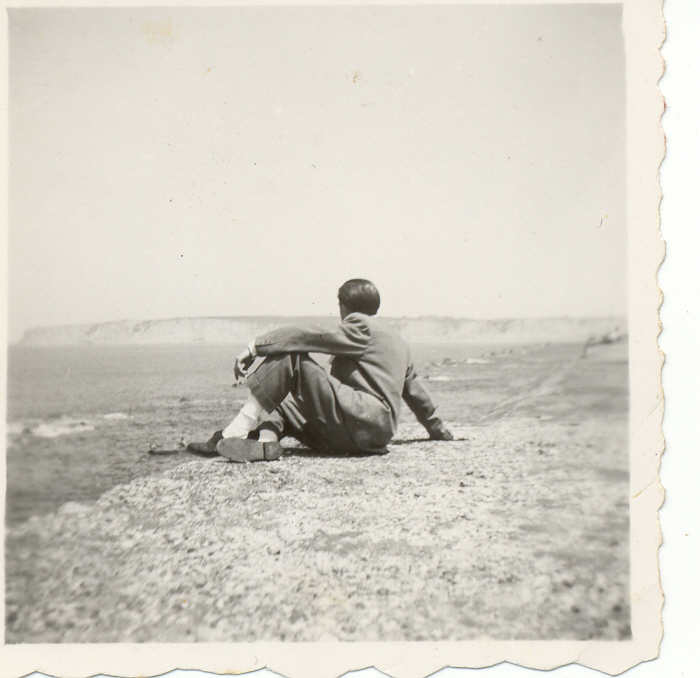
Blas de Otero Muñoz was a social poet who fought all his life against the Franco regime, but his curiosity was also demonstrated on his date of birth, since he was born a month before Rubén Darío had died in Nicaragua, while Juan Ramón Jiménez was going to launch his Diary of a Newlywed Poet, as if fate didn't want to have poetic voids.
If we talk about their relatives, we will be able to see that, in the war of 1914, many Spanish bourgeois had the opportunity to do business without problems, especially in the metals industry. This is how the poet's father increased his fortunes in these years, although he also suffered the consequences of the economic depression that ended in 1929 with the dreams of the “happy twenties”.
On the page of the poet's foundation they mention that it took him ten years to be a rich boy. At the age of seven he entered the school of Doña María de Maeztu, in whose warm teaching he learns the first letters, but soon he is torn from that shelter to start high school in an austere Jesuit college (“I am not to blame that the memory is gloomy”, he will write later).
With the problems of the war, the father tried to recover his fortune and decided to move with his whole family to Madrid in 1927. There, Blas de Otero discovers “the freedom of Madrid's streets, childhood loves and, following an old family tradition, will receive bullfighting lessons at the Las Ventas Bullfighting School”.

However, the death of his older brother, in the middle of adolescence, and two years later that of his father, determined his future “I was going to study literature, but a brother who died at the age of sixteen had already started law and my family encouraged me to take his place”.
After returning, again, to Bilbao, he devoted himself fully to studying law and years later he obtained a law degree. However, he had to hide economic problems in his circle of friends. Although the Civil War surprises him, because he joins the Basque battalions fighting Franco's army.
At the beginning of the 1950s, he tried to publish a book entitled “I Ask for Peace and the Word”, but confronted with the prohibition of censorship, and when he was allowed to publish these poems in the light, he mentions the foundation that the author had to replace some words with others harmless to the dictatorship: “God, becomes' sun ',' phalanges' becomes the 'alangels'”.
He is widely recognized for his poetry and the themes he wrote, because in his poetic work he spoke of the religious, existential and social stage.
Blas de Otero Muñoz died in Majadahonda on June 29, 1979, a few months after his sixty-third birthday, doctors determine that it was a pulmonary embolism that killed him.
KEEP READING:
Últimas Noticias
Debanhi Escobar: they secured the motel where she was found lifeless in a cistern
Members of the Specialized Prosecutor's Office in Nuevo León secured the Nueva Castilla Motel as part of the investigations into the case

The oldest person in the world died at the age of 119
Kane Tanaka lived in Japan. She was born six months earlier than George Orwell, the same year that the Wright brothers first flew, and Marie Curie became the first woman to win a Nobel Prize

Macabre find in CDMX: they left a body bagged and tied in a taxi
The body was left in the back seats of the car. It was covered with black bags and tied with industrial tape
The eagles of America will face Manchester City in a duel of legends. Here are the details
The top Mexican football champion will play a match with Pep Guardiola's squad in the Lone Star Cup

Why is it good to bring dogs out to know the world when they are puppies
A so-called protection against the spread of diseases threatens the integral development of dogs




